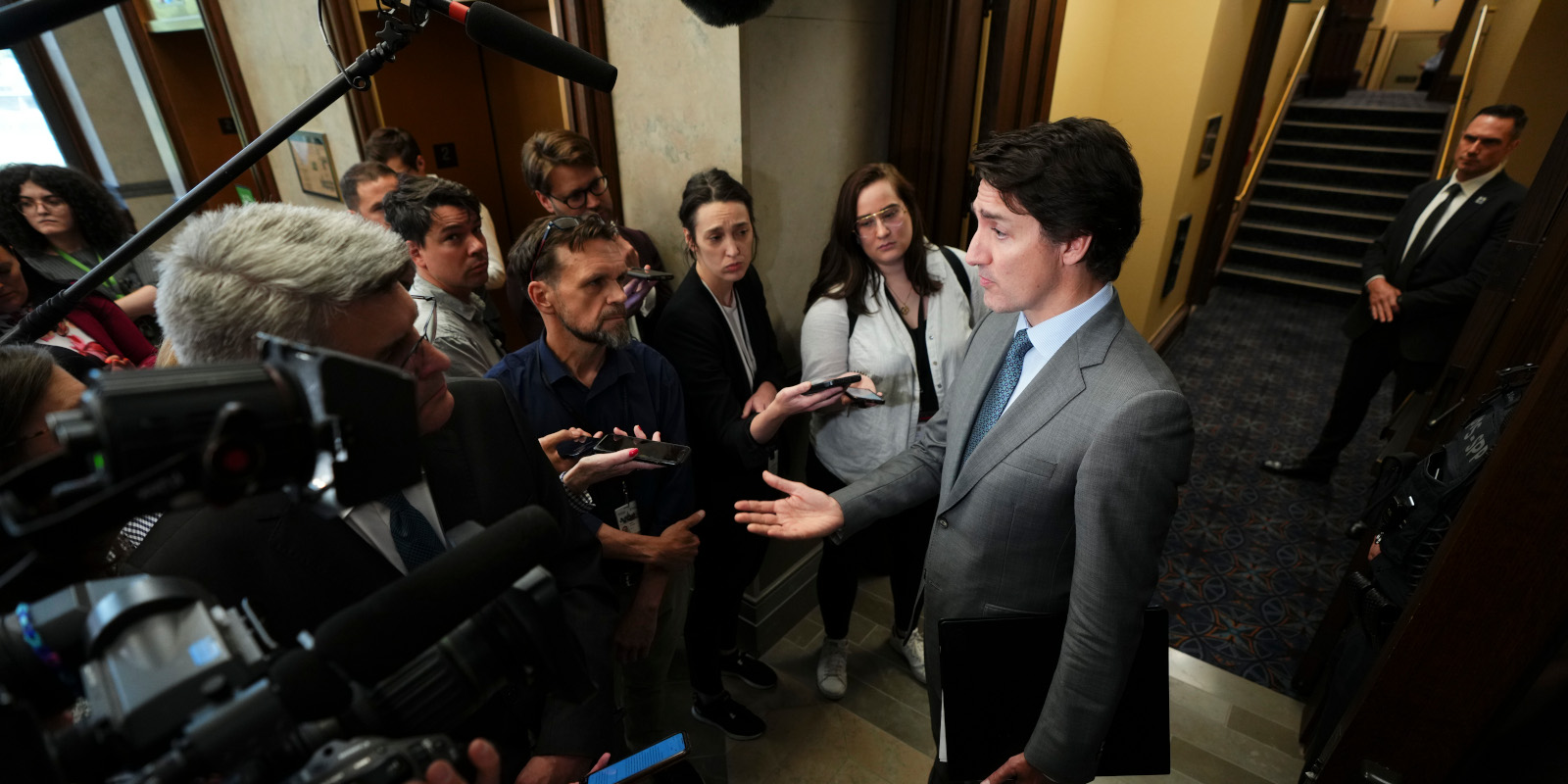On Wednesday, the Trudeau government announced that it had reached an agreement with Google that would see the tech giant pay $100 million annually to Canadian news outlets under the Online News Act.
The legislation, which was passed in June 2023, mandates Google and Meta to enter into compensatory agreements with Canadian news outlets for the distribution of their choice on the major internet platforms. Meta has chosen to opt out of the legislation by not featuring news on its platforms in Canada. Google warned that it may adopt a similar position. The window to reach an agreement was closing because the law takes effect on December 19.
The immediate resolution to Google’s possible exit from news in Canada will be a relief to news media outlets of all sizes. But it does create some of its own challenges concerning which outlets will receive funding under the agreement, as well as the total magnitude of direct and indirect government subsidies now going to the industry.
“We’re pretty close, by my estimation, to a 50 percent wage subsidy on journalist salaries up to $85,000 per year,” says Rudyard Griffiths, executive director of The Hub.
Canadian Qualified Journalism Organizations were already eligible for the Canadian Journalism Labour Tax Credit which provides refundable tax relief of 25 percent up to an annual cap of $55,000 per eligible newsroom employee.
Last week’s Fall Economist Statement announced that the government will increase the generosity of the tax credit to 35 percent and the annual cap per newsroom employee from $55,000 to $85,000.
Griffiths estimates that after combining Google’s $100 million in new funding with the now-enhanced federal tax credit, roughly half the salary of a journalist earning $85,000 will be defrayed by the federal government or Google. He says this ostensibly achieves the government’s goal of effectively subsidizing 50 percent of journalistic salaries in Canada.
“What does it mean long term when as much as half of the newsroom costs of private media organizations, not the CBC, will be paid for by government support?” asked Griffiths. “This likely is not going to be positive for the ongoing challenges that mainstream media is facing in terms of declining public trust in the very news and information that they produce.”
Trust in Canadian news media has noticeably declined in recent years. According to one survey, the share of Canadians who reported that they trusted the news most of the time fell from 55 percent in 2015 to 40 percent in 2023. Griffiths says this declining trust is unlikely to be reversed when half of newsroom costs are being subsidized by the federal government and large technology firms like Google.
“They’re paying half of the bills of the very newsrooms that are extensively there to investigate them, challenge them, and report on their policies and prescriptions for society,” says Griffiths.
Appearing before the committee as a witness, Michael Geist, the Canada Research Chair in Internet and e-Commerce Law at the University of Ottawa, stated that any funds raised for media outlets through the Online News Act would mainly benefit legacy media organizations.
“The parliamentary budget officer tells us 75 percent of the money goes to the broadcasters, radio, and television largely based on the way it was structured,” said Geist, noting that media in Canada is dominated by a handful of large organizations. “Personally, I think it was a mistake to think that, at a minimum, if the goal was to support the core and what we would think of as newspapers or digital publishers. And that’s where the focus of the legislation ought to have been.”

Griffiths says it is unclear right now as to whether all media outlets, including both established legacy organizations and newer startups, will benefit from the new Google agreement. He points out that the eligibility for the Canadian Journalism Labour Tax Credit is adjudicated by the Canadian Revenue Agency, while the Google agreement will be overseen by the Canadian Radio-television and Telecommunications Commission.
“There will no doubt have to be some interesting decisions that get made about what the CRTC thinks original news content is,” says Griffiths. “My sense is that you would probably want to allocate the funds as close as you can on a qualified journalist per organization basis.”
Bill C-18’s consultations began in 2021 when Canadian Heritage met with various news media professionals and experts. In the last 12 years, news media in Canada has shed $4.9 billion in revenue, with over 33 percent of Canadian journalism jobs disappearing since 2010, and 450 news outlets shuttering from 2008 to 2021.
According to data from Statistics Canada in 2018, there were 13,000 journalists in Canada in 2011. It is estimated that there are roughly between 8,000 and 9,000 working journalists today, meaning that Google’s $100 million contribution should represent something between $11,111 and $12,500 per journalist.
Recommended for You

‘This is a president with diminished political capital’: The Roundtable on Trump’s Epstein letter and what it means for trade negotiations with Canada

Eric Lombardi: Our politicians want you to forget about Canada’s biggest socioeconomic challenge. Yes, it’s still housing

Will the U.S. force Canada to revisit supply management?

‘The public is not stupid’: The Full Press on the real reasons behind Travis Dhanraj quitting the CBC




